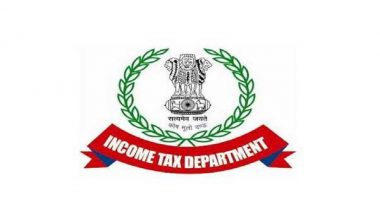New Delhi, May 20: The government on Thursday extended the due date of filing income tax returns for 2020-21 for individuals by two months till September 30. The Central Board of Direct Taxes (CBDT) has also extended the ITR filing deadline for companies by a month till November 30.
As per the income tax law, for individuals whose accounts are not required to be audited and who usually file their income tax return using ITR-1 or ITR-4 forms the deadline to file ITR is July 31. The deadline for taxpayers, like companies or firms, whose accounts are required to be audited is October 31.
In a circular, the CBDT said an extension of time limits is being given for certain tax compliances "to provide relief to taxpayers in view of the severe pandemic". Also, the deadline for issuing Form 16 by employers to employees has been extended by a month till July 15, 2021, the CBDT said. Income Tax Dept to Launch Its New E-Filing Portal incometax.gov.in on June 7; Existing ITD Portal To Remain Suspended For 6 Days From June 1 to 6.
The due date for filing the tax audit report and transfer pricing certificate has been extended by a month till October 31 and November 30, respectively. For filing belated or revised return of income, the due date is now January 31, 2022.
Besides, the deadline for financial institutions to furnish the Statement of Financial Transaction (SFT) report has been extended till June 30, from May 31, 2021. Nangia & Co LLP Partner Shailesh Kumar said the extension of due dates is likely to provide some relief to taxpayers on the tax compliance front.
"However, for taxpayers, whose entire income tax liability is not discharged by TDS and advance tax and such shortfall is more than Rs 1 lakhs, they should endeavour to file their ITR within respective original due date to avoid the charge of interest u/s 234A, which is charged on filing ITR beyond the original due date at the rate of 1 per cent per month for every month/ part thereof after the original due date of filing ITR," Kumar added.
The CBDT had on April 1 notified forms for filing I-T returns for 2020-21 fiscal, and said that keeping in view the ongoing crisis due to COVID pandemic and to facilitate the taxpayers, no significant change has been made in comparison to the last year's ITR Forms. The new ITR forms ask taxpayers if they are opting for a new tax regime.
For the 2020-21 fiscal, the government had given taxpayers the option to choose a new tax regime under section 115BAC of the I-T Act. The new I-T slabs would be for individuals not availing or foregoing certain specified deductions or exemptions while computing total income for tax purpose.
Under this, annual income up to Rs 2.5 lakh is exempt from tax. Those individuals earning between Rs 2.5 lakh and Rs 5 lakh will pay 5 per cent tax. Income between Rs 5 and 7.5 lakh will be taxed at 10 per cent, while those between Rs 7.5 and 10 lakh at 15 per cent.
Those earning between Rs 10 and 12.5 lakh will pay tax at the rate of 20 per cent, while those between Rs 12.5 and Rs 15 lakh will pay at the rate of 25 per cent. Income above Rs 15 lakh will be taxed at 30 per cent.
(The above story is verified and authored by Press Trust of India (PTI) staff. PTI, India’s premier news agency, employs more than 400 journalists and 500 stringers to cover almost every district and small town in India.. The views appearing in the above post do not reflect the opinions of LatestLY)













 Quickly
Quickly


